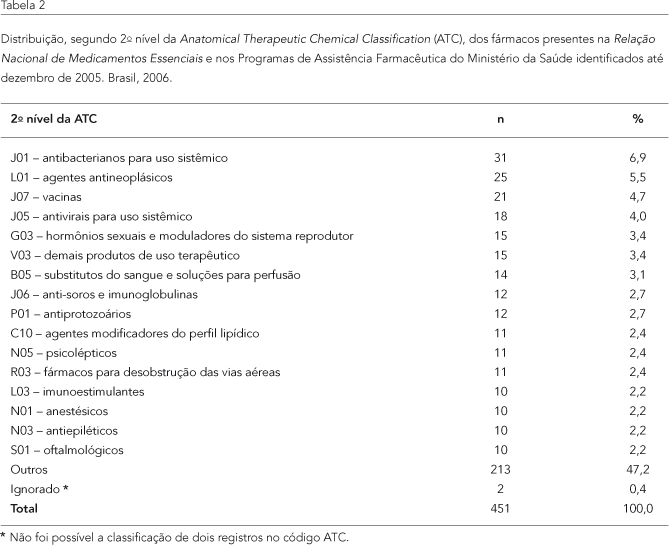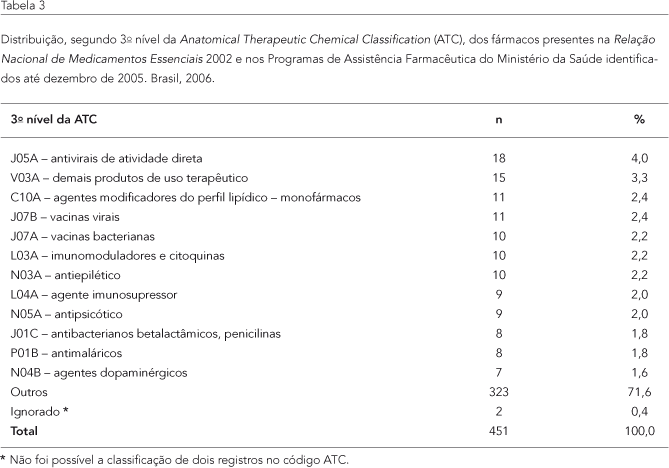A key objective of the Brazilian National Drug Policy is the quality of medicines supplied to the population. This study aimed to set priorities for the analysis of the National Program for Quality Control of Medicines. The main criterion was the drug's presence in at least three Pharmaceutical Care Programs under the Ministry of Health. Additional criteria were presence on the National List of Essential Drugs (RENAME) in 2002 and its indication for the 20 main causes of disability-adjusted life years (DALY). The sources were data from the Ministry of Health and related legislation. The drugs were classified according to the Anatomical Therapeutic Chemical Classification System (ATC) of the WHO. The 13 pharmaceutical care programs included 893 products classified in 449 different ATC codes. Twenty-eight drugs were considered priorities, 26 of which were listed on the RENAME and 12 indicated as causes of DALY. It is recommended that the National Health Surveillance Agency and Secretariat of Science, Technology, and Strategic Inputs establish an integrated strategy to guarantee comprehensive quality of these drugs, including laboratory quality, registration, good manufacturing practices, and information for health professionals and the general population.
Drug Quality; National Drug Policy; Health Surveillance





